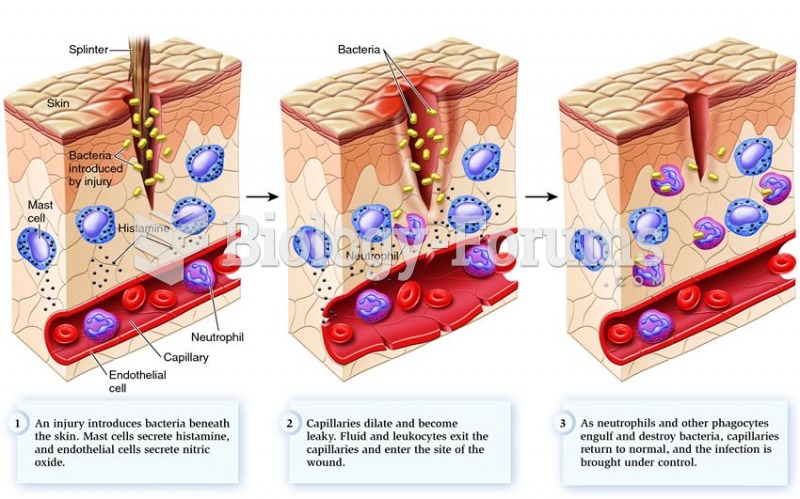|
|
|
All patients with hyperparathyroidism will develop osteoporosis. The parathyroid glands maintain blood calcium within the normal range. All patients with this disease will continue to lose calcium from their bones every day, and there is no way to prevent the development of osteoporosis as a result.
By definition, when a medication is administered intravenously, its bioavailability is 100%.
Sildenafil (Viagra®) has two actions that may be of consequence in patients with heart disease. It can lower the blood pressure, and it can interact with nitrates. It should never be used in patients who are taking nitrates.
There are more sensory neurons in the tongue than in any other part of the body.
Drying your hands with a paper towel will reduce the bacterial count on your hands by 45–60%.






